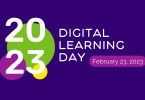By Ikechukwu Onyekwelu
Seven years from now, many jobs that students will be engaged in have not been invented and this is both exciting and worrisome. Exciting because it means new frontiers are opening.
Worrisome because many skill sets would become obsolete but how many schools in Nigeria are paying attention enough to prepare students for this emerging world?
From a leaf from Nigeria’s oil and gas sector. During the oil boom of the 1970s, oil discovery skills and its ancillaries were darlings of the labour market. But renewable energy has continued its blazing rise, creating a growing market for new jobs and causing a decline in demand for oil discovery skills that were once the dream of science and engineering-inclined students.
With the development of the motor car in the 19th century, demand for oil increased. As the number of cars on the road increased, so did the need for oil used to manufacture gasoline (or petrol). This is quickly changing. Royal Dutch Shell, one of the largest employers of petroleum geoscientists and engineers, is reducing investment in fossil fuels and concentrating on electric automobiles as a symptom of the shifting energy environment. The energy transformation has already started.
Notice that new technologies create demand for new skill sets. This is happening again and the schools that prepare the students for tomorrow’s job markets will have a competitive advantage.
Drones, alternative energy, autonomous cars, cryptocurrencies and blockchain developments are the new technologies spinning the jobs.
Bruce M. Anderson, a content marketer, editor and writer on LinkedIn’s Talent Blog highlighted some of the jobs that recruiters will be recruiting for in 2030.
Organ creator
According to the website Crimson Education, which is based in New Zealand, the lack of transplantable organs will eventually push researchers to use stem cells and other materials, including perhaps ones that do not even exist yet to build organs and other body parts. Recruiters will be looking for applicants with experience in tissue engineering, biomedical engineering, or molecular biology.
Augmented-reality journey builder
With concepts like Total Recall (memory implants for vacations) and Westworld (an amusement park staffed by androids), augmented reality (AR) trip builders will let users experience just about whatever they choose.
According to Cognizant’s 21 Jobs of the Future, the next generation of mind-blowing stories and in-the-moment vignettes for wealthy clients will be “designed, written, created, calibrated, gamified, built, and — most crucially — personalised” by the AR journey builders. A degree from a film school and expertise with massively multiplayer online role-playing games are prerequisites for the post.
Metaverse planner
Ironically, some of the first employment generated by the metaverse are in brick-and-mortar stores selling virtual reality (VR) and AR equipment. Meta established a store in California in early May 2022. Of course, as time goes on, the metaverse will not only enhance reality but also the LinkedIn list of in-demand positions.
Metaverse planner will be one such role. The planner will need to manage a strategic portfolio of prospects from proof-of-concept to pilot to implementation, according to Honeypot, a European job site for tech talent. Both management expertise and an entrepreneurial drive are prerequisites for planners. And they will undoubtedly need a metaversity education.
Biofilm installer
Biofilms are nasty, sticky, and difficult to remove from moist surfaces because they are clusters of microbial cells. They are the real-life equivalent of pond scum and slime, and they cause 80 per cent of microbial infections. However, they are also amazing tools for electricity production, sewage treatment, and oil spill cleaning.
The Canadian Scholarship Trust (CST), which also sees a large role for biofilm installers in “retrofitting smart, energy-efficient buildings,” claims that by coating specific surfaces in the bathroom and kitchen of houses, they will become essential tools for environmentally friendly structures.
Installers of biofilm may add bacteria that fight bathroom mildew to showers or, more generally, may provide homes with a live organism to handle rubbish.
Algorithm bias auditor
Much of modern life is governed by algorithms, from the music choices made by Spotify to the relationship choices made by Tinder. They are also the driving force behind the modern hiring process, which includes serving up job listings to job seekers and candidates to recruiters through applicant tracking systems (ATS).
According to the World Economic Forum, “it’s a near certainty that when it comes to how they’re formed, verification through audits will assist ensure the future workforce is also the fair workforce” given the growing statutory scrutiny on data. Auditors of algorithm bias will have training in computer science or data analytics.
Earthquake forecaster
The position of earthquake predictor has been a profession of the future for at least 50 years. Many of the careers on this list would have been unthinkable even a few years ago.
Many experts predicted that timely, reliable earthquake prediction will soon be possible in the 1970s. It’s still there, just around the corner, after 50 years. However, recent advances in machine learning applied to seismology have also spurred hopes that organizations like businesses and governments may soon begin hiring forecasters. Undoubtedly, having a foundation in geology and geophysics will be helpful, but so might a little magic.
Digital currency advisor
Investors now have a ton of opportunity, and possible risk, in unregulated financial products due to the increasing interest in cryptocurrencies like Bitcoin, Litecoin, and Ethereum. According to CST Savings, a Canadian bank, “digital currency advisors” specialise in these currencies and teach consumers how to manage their wealth by utilising the balance of the appropriate system.
Advisors for digital currencies will have experience in data security, financial administration, and accounting.
Technology continues to be the fastest-growing field, which is consistent with trends from before the pandemic. This is meant to jolt school owners and designers of curricula into rethinking what students are learning. Otherwise, the learners leave school and find that the world they were prepared for no longer exists.








